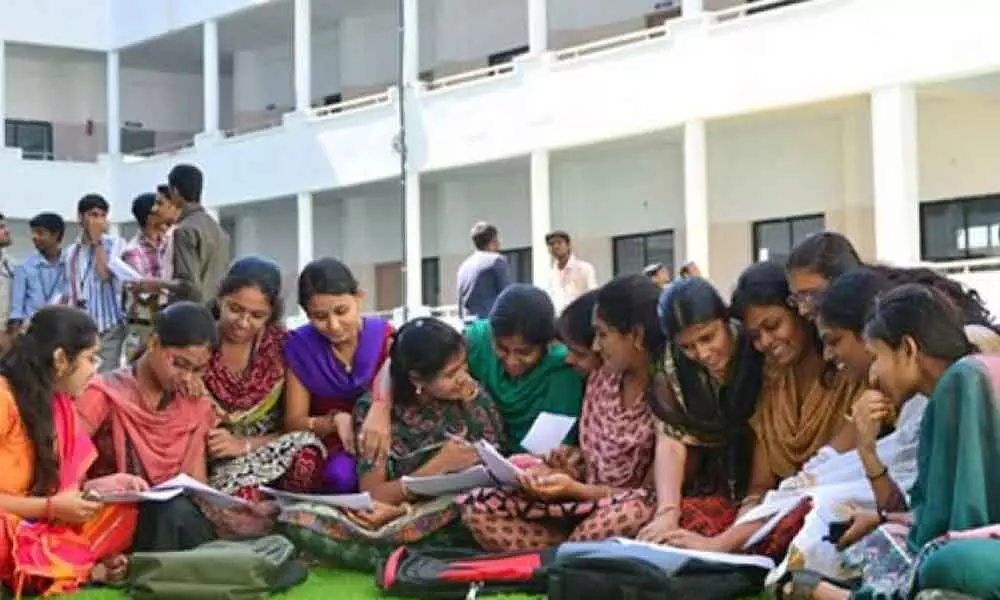Live
- India rated as fastest growing G20 economy
- Maha campaign ends, polls tomorrow
- Assailants of Cong leader held after encounter; 2 hurt
- Manipur situation: 1 protester dead
- CID books Posani for defamatory comments against CM
- Bad weather: 15 flights diverted, over 100 delayed
- Raj HC stays posting of sub-inspectors
- AP, TG move forward to settle bifurcation issues
- Govt abolishes two-child norm for local body candidates
- Warangal to reverberate with ‘Praja Palana Vijayotsavalu’
Just In
NEP to impact fate of 2.5 lakh engineering students in Telangana, Andhra Pradesh


NEP to impact fate of 2.5 lakh engineering students in TS, AP
- The proposed policy is to rewrite the two-decade-old professional IT education policy in TS and AP
- Right from recruitments, students from BA,B.Com and B.Sc will compete with their engineering counterparts
Hyderabad: The New Education Policy (NEP)-2020 is all set to rock the boat of about 2.5 lakh students studying in nearly 600 engineering colleges in Telangana and Andhra Pradesh. It may be mentioned here that the Telugu states have pursued a technical education policy for the last two decades aligned mainly to the Information Technology industry. And, the engineering colleges have been acting as captive mines to provide human capital to the IT industry.
However, all this is going to change soon with the NEP-2020 says, Telangana State Council of Higher Education (TSCHE), Vice-Chairman, Prof V Venkata Ramana.
"Now students from B.A, B.Com, B.Sc with specialisations in mathematics, besides, the opting credits in Computer Sciences and Information Technology related courses during their 4-year proposed degree programmes under NEP-2020 can compete with the B Tech graduates." That apart, the credit system that is coming along with the new policy allows students to earn as many as 30 to 40 credits during their degree courses.
This makes the learning and teaching free from a straight-jacket pursuit replaced with multi-talented with creativity and innovation. In turn, the full-matrix of multi-domain skills with a specialised base is what the industry is looking for. Against the backdrop of emerging technologies like AI, IoT, Data Sciences, it is the domain knowledge with multiple-skills would rule the new education and employment landscape. Adding, the new education policy is a welcome sign, he affirmed.
Against this backdrop, now the engineering institutions which are so far limiting to the teaching technology courses and management courses will have a tough time to reorient to catch up with the changes, to be afloat and to provide training their students.
Prof B Satyanarayana of Osmania University said, 'it is not only the information technology. Now, a student studying botany and zoology can also opt for credits in subjects like horticulture, sericulture, agriculture and allied sciences."
Also, a kind of laid back attitude in the current system of faculty appointed for a single subject will drastically be going under change. "The faculty will have to work hard to catch up with the students all set to pursue their courses with a multidisciplinary focus. Another added advantage. Currently, the research activities at several state universities have literally reduced to nominal. The NEP-2020 will help in rejuvenating it. However, the funds flow need to be consistent as currently the funding on state universities is not even 4 per cent, he said.

© 2024 Hyderabad Media House Limited/The Hans India. All rights reserved. Powered by hocalwire.com






